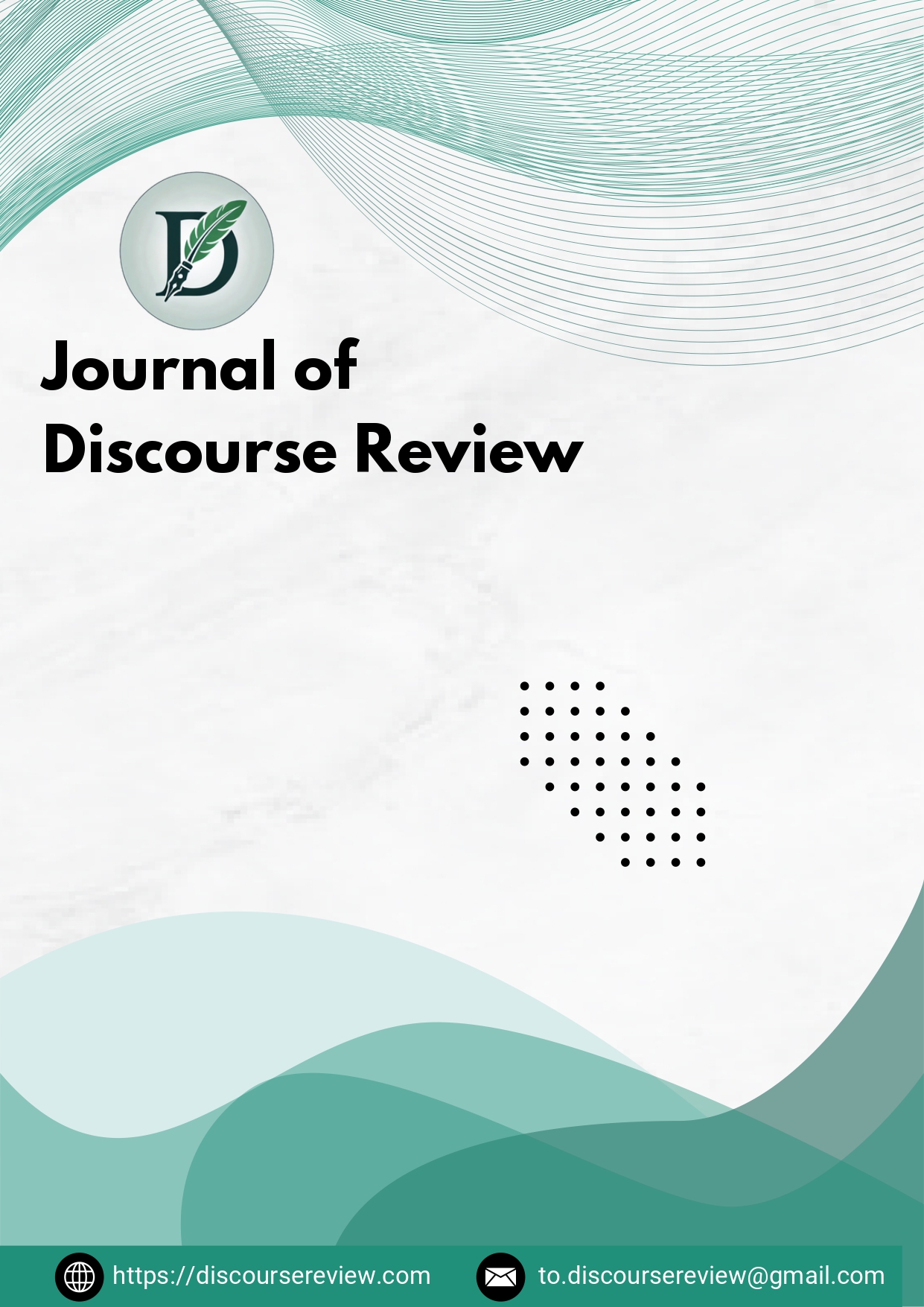
Journal of Discourse Review
Open Access Humanitarian scholarship
7 days
Time to first decision

Open Access Humanitarian scholarship
Time to first decision
Volume: 1 Issue: 2
Year: 2025, Page: 169-178,
Received: June 15, 2025 Accepted: June 23, 2025 Published: July 22, 2025
In the era of pervasive digital technologies, surveillance has evolved into a distributed, algorithmically driven force. This paper argues that datafication, the conversion of human lives into quantifiable digital data, manifests in deeply gendered forms of surveillance and control within the digital public sphere. Drawing on Zuboff’s (2019) “surveillance capitalism” and Benjamin’s (2019) “New Jim Code,” this study critically examines how algorithmic systems not only perpetuate but intensify existing patriarchal and intersectional oppressions. Through a feminist lens, it investigates how women's digital bodies are surveilled, commodified, and policed, restricting autonomy and reinforcing normative control, particularly amidst caste, religious, and class inequalities in India. Empirical evidence like UN Women (2020) and Freedom House (2024) reports highlight these vulnerabilities. Utilizing discourse analysis, the paper interrogates the power embedded in digital architectures, contending that the digital public sphere, far from democratizing, is stratified and exclusionary, echoing Fraser’s (1990) critique. This study contributes to critical feminist digital studies, advocating for digital justice rooted in care and consent, and calls for gender-responsive digital governance.
Keywords: Gendered Surveillance, Datafication, Digital Public Sphere, Algorithmic Bias, Feminist Digital Justice, Technology-Facilitated Violence.
Ahmed, S. (2017). Living a feminist life. Duke University Press.
Amnesty International. (2020). Troll Patrol India: Exposing online abuse faced by women politicians in India.
Banet-Weiser, S. (2018). Empowered: Popular feminism and popular misogyny. Duke University Press.
Benjamin, R. (2019). Race after technology: Abolitionist tools for the new Jim code. Polity Press.
Browne, K. (2015). Negotiations and fieldworkings: Friendship and feminist research. ACME: An International Journal for Critical Geographies, 2(2), 132–146. https://doi.org/10.14288/acme.v2i2.690
Crenshaw, K. (1991). Mapping the margins: Intersectionality, identity politics, and violence against women of color. Stanford Law Review, 43(6), 1241–1299. https://doi.org/10.2307/1229039
Dubrofsky, R. E. (2011). The surveillance of women on reality television: Watching The Bachelor and The Bachelorette. Lexington Books.
Eubanks, V. (2018). Automating inequality: How high-tech tools profile, police, and punish the poor. St. Martin’s Press.
Fairclough, N. (1995). Critical discourse analysis: The critical study of language. Longman.
Fraser, N. (1990). Rethinking the public sphere: A contribution to the critique of actually existing democracy. Social Text, 25/26, 56–80. https://doi.org/10.2307/466240
Haggerty, K. D., & Ericson, R. V. (2000). The surveillant assemblage. The British Journal of Sociology, 51(4), 605–622. https://doi.org/10.1080/00071310020015280
Internet Democracy Project. (2019). Online gender-based violence: A submission to the UN Special Rapporteur. https://internetdemocracy.in/reports/
Internet Freedom Foundation. (2022). Gendered disinformation: Challenges and policy responses. https://internetfreedom.in
Lyon, D. (2018). The culture of surveillance: Watching as a way of life. Polity Press.
Mayer-Schönberger, V., & Cukier, K. (2013). Big data: A revolution that will transform how we live, work, and think. Eamon Dolan/Houghton Mifflin Harcourt.
Nissenbaum, H. (2010). Privacy in context: Technology, policy, and the integrity of social life. Stanford University Press.
Noble, S. U. (2018). Algorithms of oppression: How search engines reinforce racism. NYU Press.
Point of View. (n.d.). Feminist principles of the internet. https://www.apc.org/en/pubs/feminist-principles-internet
Shah, N., & Radhakrishnan, S. (2021). Digital feminist activism in India: Navigating visibility and erasure. Feminist Media Studies, 21(3), 476–492. https://doi.org/10.1080/14680777.2021.1875012
van Dijk, T. A. (2001). Critical discourse analysis. In D. Schiffrin, D. Tannen, & H. Hamilton (Eds.), The handbook of discourse analysis (pp. 352–371). Blackwell.
Zuboff, S. (2019). The age of surveillance capitalism: The fight for a human future at the new frontier of power. PublicAffairs.
© 2025 JDR Academic Trust. This is an open-access publication distributed under the terms of the Creative Commons Attribution 4.0 International License (CC BY 4.0). https://creativecommons.org/licenses/by/4.0/
Imam, M., Manimekalai, N., & Suba, S. (2025). Surveilled Selves: Gendered Datafication and the Discourse of Control in the Digital Public Sphere. Journal of Discourse Review, 1(2), 169-178.